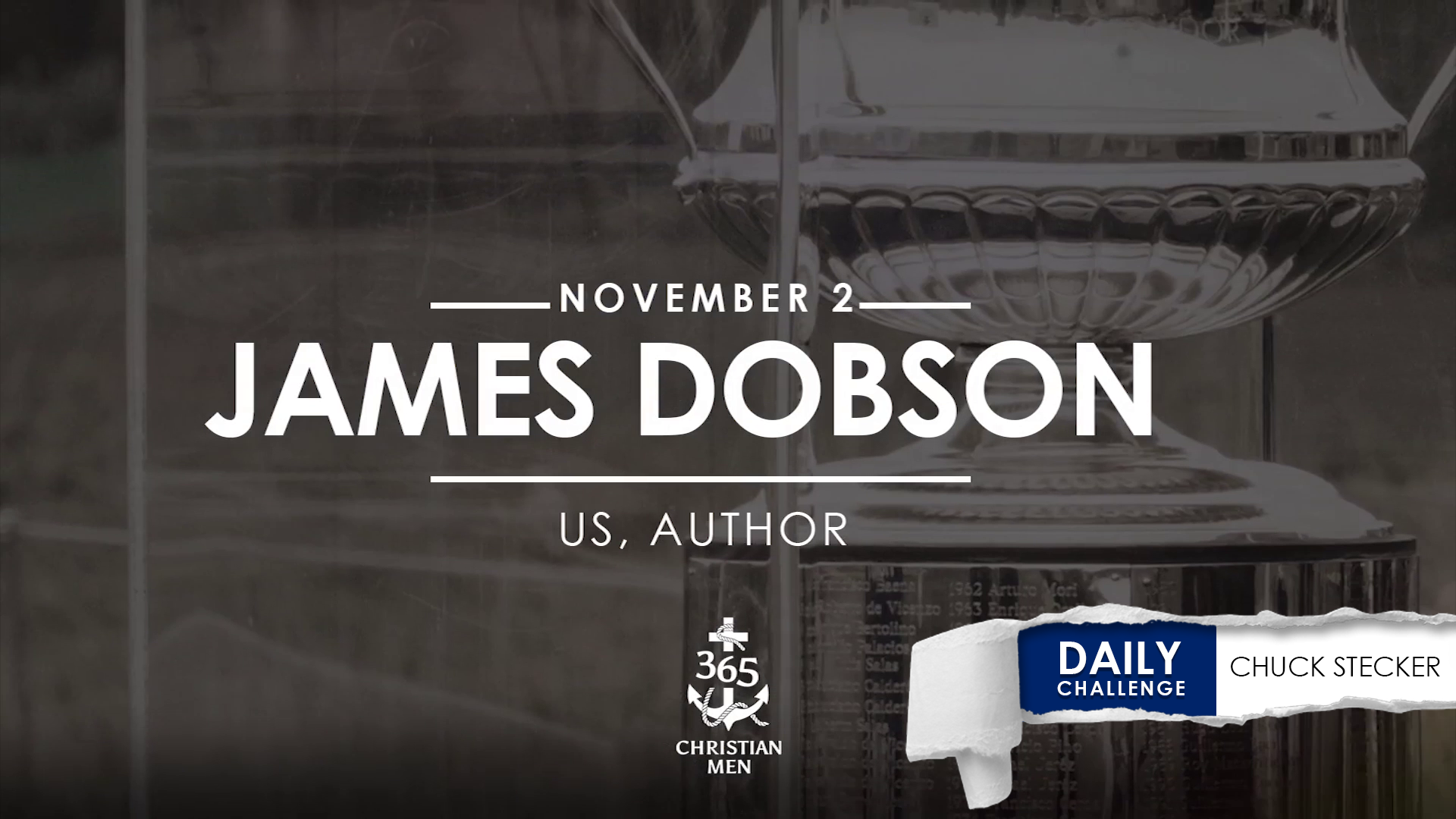November 2. James Dobson. Dobson is a world-famous psychologist. He founded Focus on the Family and started the radio broadcast “Family Talk.” On this date in 1981, “Family Talk” first became a daily thirty-minute program.
Today, it’s heard on more than 1,300 stations around the world. More than 5 million people follow Dobson on social media, and he has published 34 books.
Dobson likes to tell about the time he played pick-up basketball with pro-basketball player Pistol Pete Maravich. Minutes after that game, Pete had a heart attack and died. He was only 40.
Dobson points at his own success, awards he’s won, books he’s written, and at Pete’s great success in basketball and says this about the moment a person dies: “What will matter most in that moment is who you loved, who loved you, and what you did together in the service of the Lord. There’s nothing else that will stand the test of time.”
Life will trash your trophies.
Dobson—an 18-year-old college freshman—wandered around his new campus. He had arrived a few days before classes began, so he could tour the buildings, and it wasn’t long before he found a trophy case in an administration building.
Dobson was a highly competitive tennis player, and he scanned the majestic awards for his sport. Football, basketball, baseball … tennis. He stared at the two-foot-tall trophy and read the names of the college champions engraved on its shaft.
His name would be on a trophy there one day. He would show everyone how good he was.
That moment was the highlight of his morning, and that trophy became his highest ambition. During his four years in college, he played his way to the top and earned MVP in his sophomore and senior seasons.
But the real prize in his mind was realizing his dream. He won the honor of seeing his name engraved on that tall trophy—twice.
He imagined how the future generations would stand at the trophy case just as he had, how they would admire his name and his accomplishments, and how they would hope that they, too, could become as great as he was.
Fifteen years later, though, an old teammate of Dobson’s paid him a visit and related an odd story. The teammate had gone back to their alma mater recently.
While he was there, he went out behind the old administration building to dump some trash in the garbage bin. In the bin, something shiny caught his eye. It was the two-foot-tall tennis trophy. This thoughtful teammate rescued the trophy and cleaned it up.
Now, as the teammate visited Dobson, to commemorate what he called their “prime,” he presented the trophy as a gift to Dobson.
But Dobson no longer saw it as a symbol of glory. Now it was nothing more than a piece of polished trash.
So much for that.
Dobson talked about the moment. “If you live long enough, life will trash your trophies.” Dobson stressed the need to focus on the people in your life and what you do in service of the Lord. The only trophies that count were everlasting ones.
“This is what the LORD says: ‘Let not the wise boast of their wisdom or the strong boast of their strength or the rich boast of their riches, but let the one who boasts boast about this: that they have the understanding to know me, that I am the Lord, who exercises kindness, justice, and righteousness on earth, for in these I delight,’ declares the LORD” (Jeremiah 9:23–24 NIV).
Does the way you spend your time stand the test of time? Life will trash your trophies.
Buss, Dale. Family Man: The Biography of Dr. James Dobson. Carol Stream IL: Tyndale House Publishers, Inc., 2005.
Dobson, James. Life on the Edge. Dallas: Word Publishing, 1995.
“Historical Timeline.” Focus on the Family. Accessed July 30, 2020. https://www.focusonthefamily.com/about/%20historical-timeline/.
Showalter, Brandon. “James Dobson to Liberty U Students: Don’t Focus on Earthly Achievements, ‘Life Will Trash Your Trophies.’” The Christian Post. Published September 26, 2016. https://www.christianpost.com/news/james-dobson-liberty-u-students-dont-focus-earthly-achievements-life-will-trash-your-trophies.html.
Story read by: Chuck Stecker














